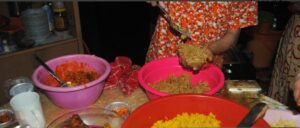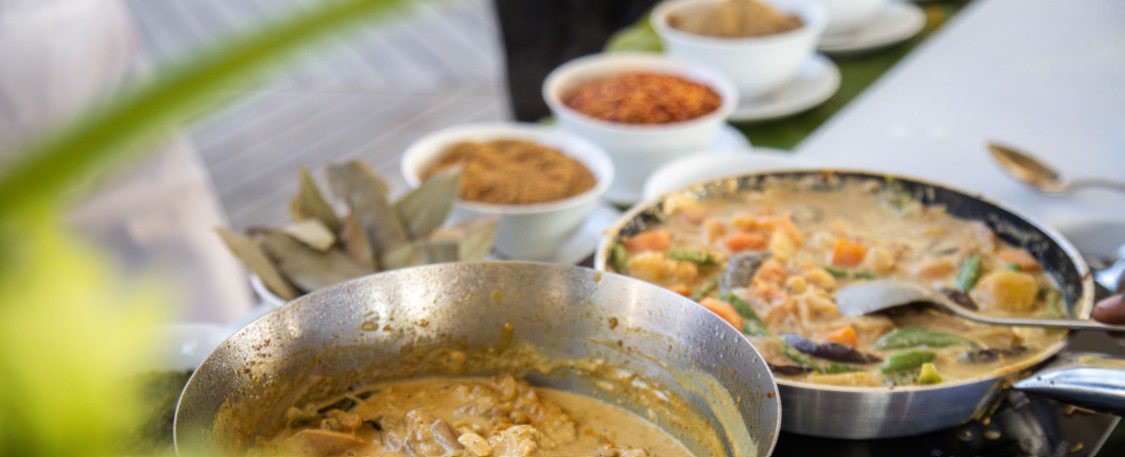How Do I Book a Swahili Cooking Class?
There’s something incredibly special about immersing yourself in the rich flavors and history of a culture. Swahili cuisine, a blend of African, Arab, and Indian influences, offers a vibrant journey for the senses. If you’re someone who has a love for food and adventure, taking a Swahili cooking class will not only introduce you to the delightful dishes of the Swahili Coast but also provide a deeper understanding of the traditions that shape these mouthwatering meals. If you’ve ever wondered how to book a Swahili cooking class, you’re in the right place.
Booking a cooking class can sometimes feel daunting, especially when you’re unfamiliar with the process or the specific cuisine you want to explore. But don’t worry! In this post, I’ll walk you through the steps to book your very own Swahili cooking class, sharing all the essential tips, details, and what to expect to ensure a truly authentic and unforgettable culinary experience.
Why Should You Book a Swahili Cooking Class?

Before diving into the logistics, let’s take a moment to appreciate why you should take the plunge and book a Swahili cooking class. Swahili cuisine is a unique fusion of flavors that tell the story of a rich, multicultural heritage. Whether you’re savoring the aromatic spices in a delicious pilau or learning the art of making mandazi, every dish you’ll prepare has a story to tell.
For many, a cooking class offers an opportunity not just to learn but to bond with locals, discover their culture, and gain practical culinary skills you can take home. The best part is that these classes often take place in intimate settings, whether it’s someone’s home, a cozy restaurant, or a cultural center. This gives you the chance to dive deep into the food and experience it just as the locals do.
Where to Book a Swahili Cooking Class
Booking a Swahili cooking class may seem overwhelming, but there are plenty of platforms that make the process smooth and simple. The internet has made booking cooking classes accessible no matter where you are. Here are a few reliable places where you can find cooking classes:
Local Cooking Schools and Cultural Centers
If you’re visiting countries along the Swahili Coast—Kenya, Tanzania, Zanzibar, or parts of Uganda—you’re in luck. Many local cooking schools and cultural centers offer classes to travelers interested in learning the art of Swahili cuisine. These are often intimate, hands-on experiences led by passionate chefs and locals who love sharing their culinary heritage.Tourism Websites
Many tourism websites list local cooking classes. These websites usually partner with authentic providers who can give you a cultural experience that aligns with your travel goals. Look for platforms that focus on eco-tourism, cultural immersion, and community-based experiences. They often prioritize sustainability and authenticity, so you’ll have a genuine taste of the local flavors.Cooking Class Platforms
Websites like Airbnb Experiences, GetYourGuide, and Viator allow you to easily book Swahili cooking classes worldwide. These platforms are excellent because they provide reviews and ratings from previous participants, which will help you decide which class best suits your preferences. The experiences vary in terms of price, location, and class size, so you can choose based on your travel schedule and interests.Private and Customized Classes
If you prefer a more personalized approach, consider booking a private Swahili cooking lesson. This gives you one-on-one time with a chef who can guide you through the meal preparation process at your own pace. You can often request customized classes focusing on specific dishes or techniques you wish to learn.
What to Expect in a Swahili Cooking Class
Now that you know where to book your class, you may be wondering what to expect once you’ve secured your spot. Here’s a sneak peek into what typically happens during a Swahili cooking class:
Introduction to Swahili Cuisine
Most cooking classes begin with an introduction to the history of Swahili cuisine and the key ingredients commonly used. Expect to learn about the influences of Arab, Indian, and African cultures on the food, as well as the significance of specific dishes in Swahili culture.Hands-on Cooking Experience
The best part of any cooking class is the hands-on experience. In a Swahili cooking class, you’ll often be guided through preparing several dishes, from starters to desserts. Expect to learn how to make traditional dishes such as:Sambusa (fried pastries with a savory filling)
Ugali (a staple made from maize flour)
Pilau (a spiced rice dish)
Mandazi (fried dough snacks)
Chapati (flatbread)
You’ll use fresh, local ingredients and learn techniques passed down through generations.
Local Insights and Stories
A unique aspect of Swahili cooking classes is the cultural exchange. While preparing your meal, the instructor may share personal stories, family traditions, and local knowledge, making the experience even more enriching. You’ll not only gain culinary skills but also a deeper appreciation for the culture that birthed these delicious recipes.
Tasting and Sharing the Meal
Once the meal is prepared, you’ll sit down to enjoy the fruits of your labor. This communal aspect of dining reflects the Swahili tradition of sharing meals with family and friends. Often, the experience concludes with a lively meal where everyone enjoys the dishes they’ve cooked together, savoring each bite with stories and laughter.
Tips for Booking Your Swahili Cooking Class
To ensure that you have the best experience possible, here are some tips to keep in mind while booking and preparing for your Swahili cooking class:
Research the Provider
Before booking, do a little research on the cooking school, platform, or chef. Check reviews and testimonials from previous participants to ensure the class is high-quality and authentic. Don’t hesitate to reach out to the provider with any questions about the experience.Consider the Group Size
If you prefer a more personalized experience, look for classes with a small group size. Smaller groups allow for more individual attention and hands-on participation. If you enjoy socializing, a larger group might offer more opportunities to connect with other travelers.Check for Dietary Restrictions
Swahili cuisine is diverse, but it’s always a good idea to inform the provider of any dietary restrictions or preferences beforehand. Many cooking classes are flexible and can accommodate vegan, vegetarian, gluten-free, or halal diets.Be Ready to Get Your Hands Dirty
Swahili cooking classes are interactive and hands-on, so make sure you wear comfortable clothing and closed-toed shoes. You might get a little messy while chopping, frying, or stirring, but that’s all part of the fun.Don’t Forget to Ask for Recipes
After the class, ask your instructor for the recipes or tips on how to recreate the dishes at home. Many instructors are happy to share this information, allowing you to bring a piece of Swahili culture back with you.
Conclusion: An Unforgettable Experience Awaits You
Booking a Swahili cooking class is more than just an opportunity to learn how to make delicious food; it’s a chance to connect with a culture, understand the history behind the flavors, and immerse yourself in the rhythms of daily life on the Swahili Coast. Whether you’re a food lover, an adventurous traveler, or someone simply looking for a new experience, taking a Swahili cooking class will leave you with memories and skills to last a lifetime.
So, take that step, make the booking, and let your senses take you on a culinary journey through one of Africa’s most captivating and flavorful cuisines. The dishes you’ll create, the people you’ll meet, and the stories you’ll hear will be just as memorable as the delicious meals you prepare.
Let the adventure begin!






